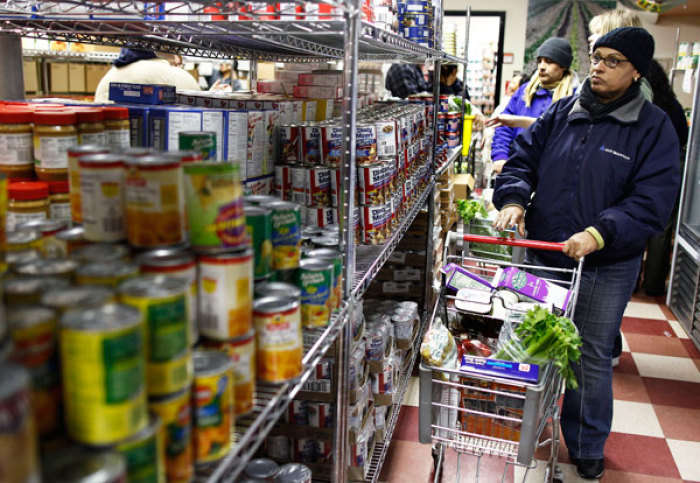America's Hungry Teens Trade Sex for Food, Study Finds

A new study on how food insecurity affects teenagers has revealed that nearly 14 million American teens are food insecure or on the margins, and some of them resort to extreme measures to deal with hunger, from saving school lunches for the weekend or going hungry so younger siblings can eat, to stealing or trading sex for money to buy food.
An estimated 6.8 million people aged 10 to 17 don't have reliable access to affordable, nutritious food, and another 2.9 million are "very food insecure," apart from roughly 4 million who live in marginally food secure households, where the threat of running out of food is real, notes the study, "Impossible Choices," by the Washington, D.C.-based group, Urban Institute.
Teens in all 10 communities, which were part of the study, and in 13 of the 20 focus groups, talked about some youth "selling their body" or engaging in "sex for money" as a strategy to make ends meet, according to the study. It further noted that this happens mostly in high-poverty communities where teens also described sexually coercive environments and that sexual exploitation most commonly took the form of "transactional dating" relationships with older adults.
When faced with acute food insecurity, teens in all but two of the communities said youth engage in criminal behavior, ranging from shoplifting food directly to selling drugs and stealing items to resell for cash, the study adds, explaining that these behaviors were most common among young men in communities with the most-limited employment options.

The study also shows that food-insecure teens strategize about how to mitigate their hunger and make food last longer for the whole family. They go over to friends' or relatives' houses to eat and they also save their school lunch for the weekend. In a few communities, teens also talked about going to jail or failing school as viable strategies for ensuring regular meals.
"I've been doing research in low-income communities for a long time, and I've written extensively about the experiences of women in high poverty communities and the risk of sexual exploitation, but this was new," The Guardian quoted Susan Popkin, a senior fellow at the Urban Institute, as saying.
"Even for me, who has been paying attention to this and has heard women tell their stories for a long time, the extent to which we were hearing about food being related to this vulnerability was new and shocking to me, and the level of desperation that it implies was really shocking to me. It's a situation I think is just getting worse over time," added Popkin, lead author of the report.
Part of the problem of food insecurity is that teens fear stigma around hunger and therefore actively hide it. "Consequently, many teens refuse to accept food or assistance in public settings or from people outside of a trusted circle of friends and family," the study notes. And while parents try to protect teens from hunger and from bearing responsibility for providing for themselves or others, teens in food-insecure families routinely take on this role, going hungry so younger siblings can eat or finding ways to bring in food and money.
The study made some recommendations to deal with food insecurity among teens. "Teen-focused strategies to alleviate hunger and direct teens away from risky behavior include increasing nutrition assistance benefits, strengthening teen nutrition programs, creating more and better youth job opportunities, and empowering teens to create community-based solutions," the study suggests. "Also, educators and police should be trained to recognize the trauma experienced by girls who are sexually exploited and provide counseling or referrals rather than treating them like offenders."
In the long term, the study adds, the only way to end teen food insecurity is to address its root cause, which is family poverty, by improving access to jobs, providing better access to opportunity-rich neighborhoods, and strengthening the safety net when parents cannot earn enough to cover basic needs.




























